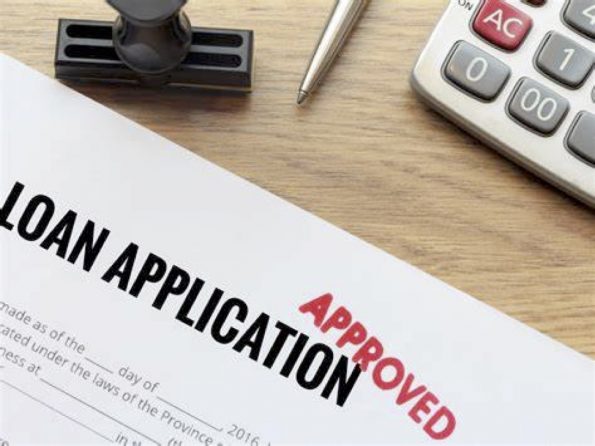When contemplating a private mortgage, it’s paramount to acknowledge the array of private mortgage necessities that come into play. These stipulations not solely guarantee one’s eligibility but in addition affect the feasibility and practicality of taking over the mortgage. Candidates might want to contemplate their credit score rating and historical past, revenue, debt-to-income ratio, and potential for collateral.

Every lender has its distinctive standards, which can embody further specifics corresponding to employment standing or instructional background. Subsequently, people should meticulously consider these components in opposition to their circumstances to find out their qualification for a private mortgage.
Within the technique of this analysis, potential debtors must be cautious to try common credit score private mortgage critiques and numerous mortgage choices. Having access to such complete info can direct people to make extra knowledgeable choices tailor-made to their monetary state of affairs.
Key Takeaways
- Credit score historical past and revenue are essential for private mortgage eligibility.
- Researching mortgage choices streamlines the borrowing course of.
- Reviewing mortgage phrases ensures a well-suited monetary settlement.
Understanding Private Mortgage Fundamentals
Earlier than venturing into the world of private loans, it’s essential to know the fundamentals, together with figuring out your mortgage wants, distinguishing between completely different mortgage sorts, and assessing numerous lender choices. This foundational data allows debtors to navigate mortgage choices with accuracy and confidence.
Figuring out Mortgage Wants
A borrower ought to first consider their monetary necessity, pinpointing the precise mortgage quantity that may meet their wants with out resulting in over-borrowing. It’s vital to think about each the principal and the potential rate of interest, in addition to any related charges. Using a private mortgage calculator may help in estimating month-to-month funds and complete value over the lifetime of the mortgage.
Realizing Completely different Kinds of Private Loans
Private loans could be broadly categorized as both secured or unsecured loans. Secured loans require collateral, which the lender can declare if the borrower defaults. In distinction, unsecured loans don’t require collateral and are sometimes granted based mostly on the borrower’s creditworthiness. The APR (annual share price) displays the true value of borrowing and varies between these sorts.
Assessing Lender Choices
Debtors have a spread of selections on the subject of choosing a lender. These embody conventional banks, credit score unions, and on-line lenders. Credit score unions usually provide decrease rates of interest however could require membership. On-line lenders could present extra versatile lending standards or quicker funding occasions in comparison with conventional banks. Nonetheless, it’s important to scrutinize the origination payment and compensation phrases, as these can considerably have an effect on the general value of the mortgage.
Qualifying for a Private Mortgage
When contemplating a private mortgage, potential debtors want to fulfill particular eligibility standards set by lenders. These private mortgage necessities typically focus on creditworthiness, steady revenue, debt administration, and a transparent borrowing historical past.
Credit score Necessities
Lenders assess credit score scores as an indicator of threat, with increased scores favoring mortgage approval. A credit score report particulars a borrower’s credit score historical past, together with previous loans, bank cards, and fee historical past. Credit score unions and banks could require a gentle credit score examine throughout pre-qualification and a tough credit score examine upon software, affecting credit score scores briefly.
Earnings and Employment Verification
Proof of steady revenue is essential, because it reassures lenders that the borrower could make month-to-month funds. Debtors should current employment historical past, tax returns, and financial institution statements as proof of revenue. For self-employed people, 1099 types or financial institution statements could suffice.
Understanding Debt-to-Earnings Ratio
The debt-to-income ratio (DTI) compares an individual’s complete month-to-month debt funds to their month-to-month revenue. Lenders use it to gauge a borrower’s capability to handle month-to-month funds and repay borrowed cash. A decrease DTI usually improves the possibilities of mortgage approval.
Software Course of
To pre-qualify for a private mortgage, candidates submit an preliminary software detailing proof of identification (like a driver’s license), proof of deal with (corresponding to a utility invoice), and revenue verification paperwork. Full mortgage functions usually require further paperwork and a extra detailed assessment of a borrower’s monetary state of affairs.
Conclusion
When contemplating a private mortgage, people ought to intently assessment their credit score rating and historical past, as that is usually the first issue lenders consider. It’s essential to offer proof of regular revenue and keep a low debt-to-income ratio to point out compensation functionality. Debtors must also be ready for attainable collateral necessities or origination charges. They have to be certain that all vital paperwork are so as, which can embody proof of identification and deal with. By understanding and assembly these core private mortgage necessities, potential debtors are higher positioned to navigate the private mortgage software course of efficiently.

